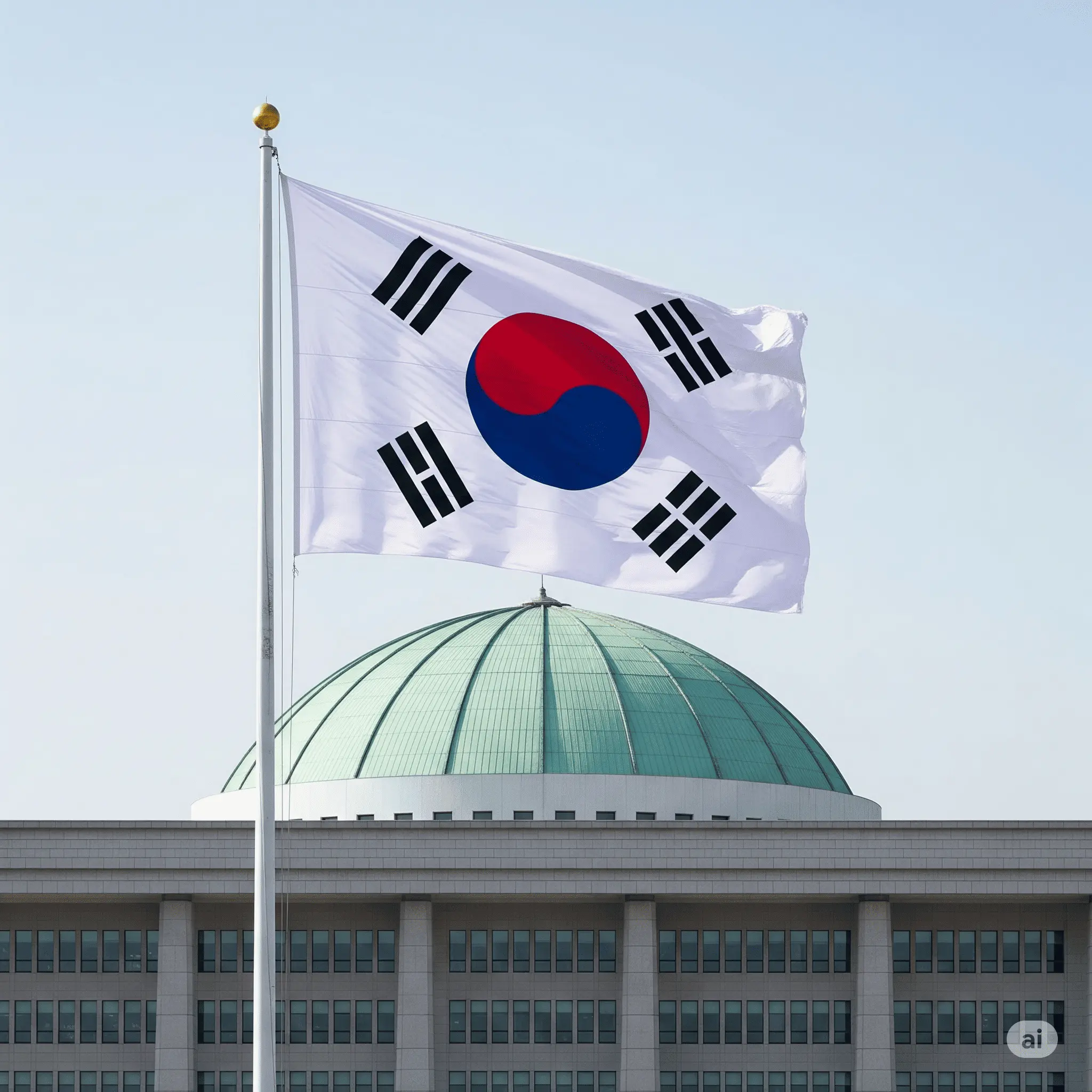When you think of July 17th, what comes to mind? For many, it might just be another workday, not marked in red on the calendar. However, Constitution Day is one of South Korea's five major national holidays, a profoundly important day that commemorates the birth of the nation's foundational law, the Constitution. Although it's no longer a day off, the historical significance and value it holds are anything but trivial. Today, let's delve into the story of the once-forgotten Constitution Day and reflect on its deep meaning and why we must remember it. 📜
1. A Promise Born from Chaos: Why Was a Constitution Needed?
On August 15, 1945, the long and arduous Japanese colonial period ended, bringing the long-awaited liberation. But the joy was short-lived. The Korean Peninsula was thrown into extreme turmoil amidst ideological conflicts and the competing interests of world powers. A new nation had to be built, but nothing was decided about what kind of country it should be. It was at this critical juncture that a 'supreme promise' was desperately needed to establish the nation's framework and guarantee the rights of its people. That promise was the Constitution.
A constitution is not merely a collection of legal articles. It is a declaration that proclaims the nation's identity—that "the Republic of Korea shall be a democratic republic"—and establishes the principle of popular sovereignty, where all power emanates from the people. It also acts as a 'safety net' to prevent state power from infringing upon the freedoms and rights of citizens, and a 'master blueprint' that ensures everyone can live a life of human dignity. As such, the Constitution was the most crucial first step in building the skeleton of a new nation out of darkness.
"We, the people of Korea, proud of a resplendent history and traditions dating from time immemorial, upholding the cause of the Provisional Republic of Korea Government born of the March First Independence Movement of 1919 and the democratic ideals of the April Nineteenth Uprising of 1960 against injustice..." – From the Preamble of the Constitution of the Republic of Korea
2. The Moment of Great Birth: The Making of the ROK Constitution
How was the first Constitution of the Republic of Korea created? The process was anything but smooth. Three years after liberation, in 1948, a general election was finally held, albeit only in the southern part of Korea under the supervision of the United Nations. This was the May 10th general election. Through this election, 198 members of the Constituent Assembly were elected, and their most urgent and vital task was to draft a constitution.
May 10, 1948
The first-ever general election is held in South Korea, electing 198 members to the Constituent Assembly.
May 31, 1948
The Constituent Assembly convenes. Syngman Rhee is elected as the first chairman, and the process of drafting the constitution begins in earnest.
June 1948
Intense debates over the draft constitution take place, especially regarding the form of government, with fierce arguments between a parliamentary system and a presidential system.
July 12, 1948
After numerous discussions, a constitutional bill featuring a presidential system and a unicameral legislature is finally passed by the Assembly.
July 17, 1948
Assembly Chairman Syngman Rhee proclaims the Constitution of the Republic of Korea. This day is designated 'Constitution Day' to commemorate the event.
An interesting point here is why the Constitution, passed on July 12, was deliberately promulgated on July 17. This holds historical significance. July 17 was the founding day of the Joseon Dynasty. By aligning the founding day of the old dynasty with the proclamation of the new democratic republic's constitution, it was intended to symbolize the historical legitimacy and continuity of the Republic of Korea.

3. Where Did the Holiday Go? Why Constitution Day Isn't a Day Off
As many may recall, Constitution Day used to be a public holiday. From its designation as a national holiday in 1949 until 2007, Koreans had the day off. However, it was removed from the list of public holidays starting in 2008. Why?
The main reason was the full implementation of the '40-hour work week' (a five-day work week), which began in 2006. As Saturdays became days off, the total number of holidays per year increased significantly. This led to growing concerns from the business community about decreased productivity and increased labor costs. In response, the government decided to adjust some public holidays, and as a result, Constitution Day, along with Arbor Day, was excluded.
Key Takeaway: The Reason for Removal
The exclusion of Constitution Day as a public holiday was largely due to economic reasons: adjusting the increased number of holidays from the five-day work week to reduce the burden on companies and maintain productivity. However, this has led to persistent criticism that the significance of Constitution Day is fading.
Of course, there are ongoing calls to reinstate Constitution Day as a public holiday. Proponents argue that a day symbolizing the values of the constitution and democracy should not be approached solely from an economic standpoint. In fact, bills to re-designate it as a public holiday have been proposed in the National Assembly multiple times. What are your thoughts on this?
4. The Constitution: What Does It Have to Do With Our Lives?
"The Republic of Korea shall be a democratic republic." Article 1, Clause 1 of the Constitution is a famous line. However, it's not always easy to feel how the Constitution concretely connects to our daily lives. In reality, the Constitution is like air, existing everywhere around us and supporting our lives.
- Freedom of Speech (Article 21): The right to freely express our opinions, post on social media, and criticize government policies is grounded in the Constitution.
- Freedom to Choose One's Occupation (Article 15): The right for anyone to choose their desired profession. Without the Constitution, this might not be possible.
- Right to Pursue Happiness (Article 10): "All citizens shall be assured of human worth and dignity and have the right to pursue happiness." The Constitution explicitly states our right to a happy life and the state's duty to guarantee it.
- Right to Work (Article 32): This not only includes the right to have a job but also the right to receive fair wages and work in a safe environment. The minimum wage system and occupational safety laws are all rooted in this constitutional spirit.
As you can see, the Constitution is not just for politicians and lawyers. It is the source of the freedoms and rights we enjoy every day and our strongest basis for crying "This isn't right!" when faced with injustice. Constitution Day is about remembering the day this precious promise was first made.

Conclusion: How We Should Remember Constitution Day
Just because Constitution Day is no longer a public holiday doesn't mean its significance has vanished. In fact, precisely because it's a working day, we might need to make a more conscious effort to reflect on its meaning. Thinking about the promise upon which the community of the Republic of Korea was founded and what that promise means to us today—isn't that the most meaningful way to spend Constitution Day?
It doesn't have to be a grand gesture. How about reading the preamble of the Constitution aloud with your family? Or simply explaining the importance of democracy and the constitution to your children? That would be a wonderful way to commemorate the day. On July 17th, even if it's a black number on the calendar, let's hope it is remembered in our hearts as the proud day that marked the beginning of the Republic of Korea. 🇰🇷
